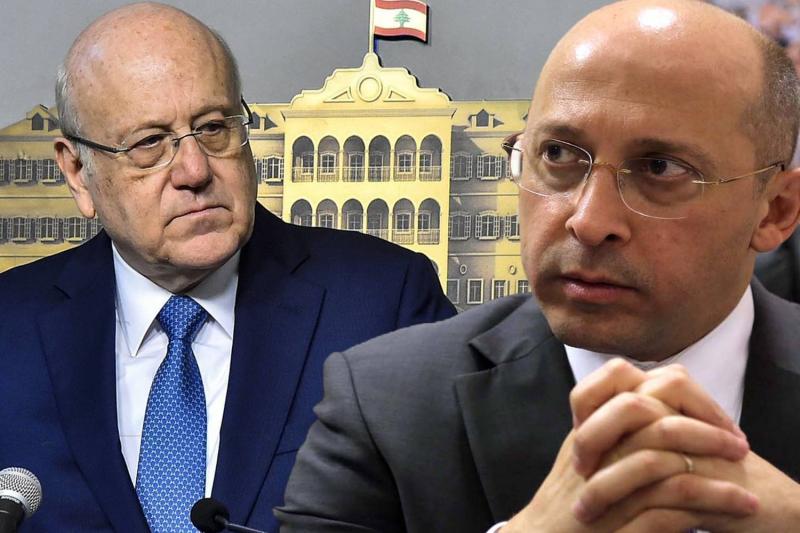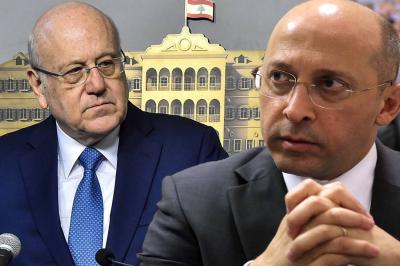The decision by the Cabinet to reject three laws passed by the Parliament has sparked widespread discontent among Christian factions, who view it as an encroachment on the powers of the vacant presidential office that has been unoccupied since November 2022. They argue that only the President, as per the constitution, has the authority to veto laws. Communications Minister Johnny Qarm stated that five ministers objected to the rejection based on the premise that the issue pertains to the Parliament.
According to Article 51 of the constitution, the President issues laws within specified time frames (one month or five days for urgent laws) after they have been approved by the Parliament, without the right to make amendments. Article 57 grants the President the right to request reconsideration once, upon which the Parliament must reapprove it by an absolute majority. If the deadlines pass without issuing or requesting reconsideration of the laws, they are considered enacted and must be published.
Despite Mikati justifying his actions as necessary for managing the country in the absence of a President, MP Alan Aoun from the "Strong Lebanon" bloc described the decision as "bad and dangerous," reflecting the saying: "Unregulated resources teach people to steal... The presidential vacancy encourages the infringement of presidential powers, particularly the power to veto laws, which is intimately tied to his person; this is an unacceptable constitutional violation." Aoun also spoke of a "flagrant violation" in reversing a decision to issue laws that had previously been taken in Cabinet, reversing after a few weeks and failing to implement it, which he deemed a careless handling and a lack of respect for laws and institutions.
He emphasized that the government is showing a lack of responsibility by evading the confrontation of issues, as it recognizes the difficulties of legislation in the current delicate political context. He stated that the solution does not lie in leaving teachers or former owners in injustice, but rather in finding equitable solutions that reconcile the interests of schools and teachers with those of tenants and old property owners, achievable through amending laws instead of outright rejection.
In response to a question, Aoun noted, "There is no way to stop this chaos except by resorting to the State Shura Council and the Constitutional Council, but more importantly, we need to elect a President to address the blatant imbalance of powers we are experiencing today, which permits all these violations." He added: "It may not suffice for us all, as opposing political forces, to lament the loss of the presidency; more realistic and courageous approaches are required to reach a settlement that ends the presidential vacancy and mitigates losses by restoring institutional order."
For his part, member of the "Lebanese Forces" bloc, MP George Adwan, stressed that "the rejection of laws during the presidential vacancy is unconstitutional and a blatant, unacceptable encroachment on the powers of the President, and it will not pass."
Constitutional experts Dr. Said Malek and Dr. Antoine Safir differ in their approach to the issue. While Malek believes that "the power to veto laws is exclusively for the President, and even if the executive branch is acting on behalf of the President, it cannot disrupt the work of the Parliament by returning laws to it under the pretext of Article 57 of the constitution," Safir argues, "we are in an exception under the constitution because of the vacancy in the presidency, and the government assumes some presidential powers. Thus, everything happening is an exception, and what is based on an exception is also an exception; therefore, the Cabinet can reject laws since it exercises the powers of the President, whereas the one who cannot do so is the Prime Minister, as the authority lies with the government."
Safir noted that "what has occurred is not an encroachment on presidential powers because there is a parliamentary process that becomes truncated if a law is passed by Parliament and it is deemed that the government has no right to veto it." He emphasized that "the primary breach of the constitution is the failure to elect a President of the Republic, the absence of a fully qualified government, and the failure of the Parliament to fulfill its legislative role in accordance with constitutional provisions."
Regarding the fate of the three contested laws, Malek told "Asharq Al-Awsat": "They will be frozen and, by default, referred to the Parliament for a second reading and a revote by a qualified majority. Challenging them before the State Shura Council is possible by any party with standing or interest, provided that the State Shura Council does not view the decision as a governmental action, as that would mean stepping outside its jurisdiction, and what has happened has happened; the laws were frozen and returned to the Parliament."
Minister of Education Abbas Halabi commented on the return of the laws to the Parliament, stating: "The Cabinet is exercising all its powers." He added: "Those negatively affected by the rejection of the laws may challenge them."




